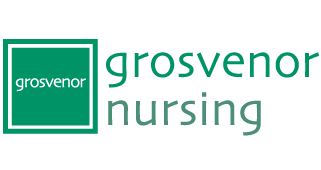Specialist Areas

Community Mental Health Nurse
A community mental health nurse (CMHN) - also known as a community psychiatric nurse - is a registered nurse with specialist training in mental health. Some CMHNs are attached to GP surgeries, or community mental health centres, whilst others work in psychiatric units.
CMHNs have a wide range of expertise. They can provide counselling, offer advice and support to people with long-term mental health conditions, and administer medication.
Some CMHNs specialise in treating certain categories of patients - such as children, older people, or people with a drug or alcohol addiction.
Are you looking to hire Community Mental Health Nurses? Find out how, here.

Learning Disability Nurse
Nurses who support people with learning disabilities to maintain their health and wellbeing within a wider social context. They help people of all ages to live their lives as fully and independently as possible, whilst respecting their rights and dignity.
Learning disability nurses work with service users and patients, and their families and carers, to assess their needs and draw up care plans, monitoring the implementation of recommendations. They work in multidisciplinary teams with other nurses and health and social welfare professionals to help people with learning disabilities cope with basic living skills and social activities, to ensure they lead a healthy and fulfilling life.

Mental Nurse
Mental health nurses work with people who suffer from a range of mental health conditions – as well as their family and carers, to offer help and support. The work requires helping the patient to recover from illness or to come to terms with it so as to lead as fulfilled a life as possible.
Nurses may specialise in working with children or older people, for example, or in a specific area such as eating disorders. Mental health nurses may work in multidisciplinary teams – and liaise with psychiatrists, psychologists, occupational therapists - as well as GPs, social workers and other health professionals.
As a registered mental health nurse, the RMN may work with patients in a variety of settings. These include the patient’s own home, community healthcare centres, hospital outpatients departments or specialist units or secure residential units, for example.

CAMHS (Child and Adolescent Mental
Health Services)
CAMHS nurses offer holistic assessment of young people with mental health issues, and their families, and provide short and long term treatment either in a clinical setting or in another location suitable for a patient’s needs.
Nurses have additional training in issues related to working with young people - for example, family therapy training, cognitive behaviour therapy, or training in solution-focused approaches to treatment, or in psychodynamic approaches to treatment.

Eating Disorder Mental Health Nurse
Nurses who monitor food intake and observe potential or actual eating disorders.
Treatment will depend on an individual’s symptoms and relate specifically to the individual problem that is diagnosed. Patients may be cared for in primary or secondary care environments; at home; as inpatients in a hospital, nursing or residential home; at a private clinic; or in an outpatient clinic.
A major role is to observe patients’ nutritional status as eating disorders can be life threatening. It is important to ensure they maintain adequate nutrition and electrolyte balance. If an eating disorder has been identified, the nurse must monitor the patient’s weight on a regular basis.
Finally, it is important to monitor patients’ activity levels. With anorexia they may undertake excessive exercise which can be detrimental to the physiological state. Additionally, if they also have a physical illness, excessive exercise could slow their recovery.
-
Protect yourself, your family and colleagues. Check out the NHS vaccination program for Health and Social Care Work… https://t.co/jhgRzyYJnb

 Give us a call!
Give us a call!
